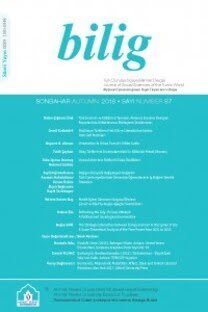Vergi Reformlarının Davranışsal İktisat Perspektifinden Değerlendirilmesi: Türkiye Örneği
The Evaluation of Tax Reform from the Perspective of Behavioral Economics: the Turkish Case
Behavioral economics, tax policy, tax compliance fiscal illusion, tax system,
- ISSN: 1301-0549
- Yayın Aralığı: Yılda 4 Sayı
- Başlangıç: 1996
- Yayıncı: Ahmet Yesevi Üniversitesi
Devlet ile Akrabalık İlişkiler Ağı Sovyet Ekonomisini Nasıl Kurdu? Kırgızistan Örneği
Türk Dünyasının Kültürel Mirası ve Müzeler
Musiki İnkılabı ve Rus Modeli: Karşılaştırmalı Müzik Sosyolojisi Açısından Bir Tartışma
Vergi Reformlarının Davranışsal İktisat Perspektifinden Değerlendirilmesi: Türkiye Örneği
Eski Anadolu Türkçesinde Aruz Vezni ve Uyağın Ek Kullanımına Etkisi
Alman Deniz Ataşesi Humann’ın Mektuplarında Enver Paşa
Kore’de Türkoloji Çalışmaları Eğilimi
Yeni Türk Devletlerinin Posta Pullarında Türk Kimliği ve Kültürü
